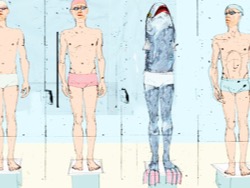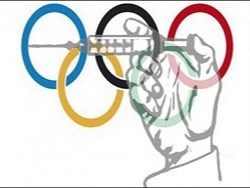
Another round of scandals associated with the Russian sports, isn’t a surprise — at least for three reasons.
First, the great role played by the growing feeling of “abnormality” of Russia, which has recently become pervasive and ubiquitous.
Show full… a time when the country was treated as a successfully developing economy, to a responsible member of the international community, potentially sharing global values and norms, finally and irrevocably left in the past. Russia has achieved what he wanted — her “rising from its knees”, for which all methods were considered acceptable, now voprinimat for what they are: a violation of all rules.
And if it is permissible to send the killers of radioactive polonium in the capital of a European country; if you can capture part of the territory of neighboring countries; if it is logical to use dubious offshore companies to ‘return to state ownership” of valuable assets, then why, in the end, in the Russian sport, which had long been announced by the Kremlin a battleground in politics and ideology, it should follow the rules?
Mourn for what our athletes paid much more than athletes from other countries, Russian officials are right: it is. But what is strange is that the police at any station, knowing in the face of swindlers and pickpockets, take a closer look to him than a curious bystander? Russia today don’t believe in all — natural and this is the price of our struggle for their “specialness”. So that is something to agree with our policies, considering that Russia is now trying to punish her for “getting up off its knees”. To paraphrase Boris Yeltsin, and I want to say: “Not so rose!”
Secondly, you can only be surprised that the scandal has affected the Olympics in Sochi just now. Just look at the statistics of the success of the Soviet and Russian athletes at the winter Olympics.
In the last Soviet years (with Games of 1976 in Innsbruck to the Games in 1988 in calgary) the proportion of our medals ranged from 19.3 to 24.3%, i.e. the “maximum deviation” from one to the other was less than a quarter of the number of awards. In the Russian period achievements became more modest: the indicator declined from 12.5% in 1994 to 8.8% in 1998 and finally to 5.8% in 2010 (Russia eventually moved in the number of won gold medals with 1 on 11-e a place). In 2014, she suddenly returned to the first position, increasing the amount won the highest awards of almost 4.5 times. Of course, we can say that “houses and walls help”, and the presence of enthusiastic fans in their own country allows athletes to work wonders.
However, in the recent past a similar case in Beijing for summer Olympics 2008, had a completely different story: the Chinese team won 28 medals at the Games of 1988 in Seoul, 50 in 1996 in Atlanta, 63 — in 2004 in Athens and came home to victory with 100 medals (a bit slowed down the pace in 2012 in London — up to 88 winning). The problems of doping and refereeing in Beijing also actively discussed, but it is obvious that fluctuations in the number of medals at 13-25% have nothing to do with the Russian “deviance” (and can in particular be explained purely an age factor, because the Chinese were preparing the athletes to the Beijing Olympics for many years before its implementation, and the part of athletes to London was already not in the best shape).
In the case of Russia the doping is the simplest explanation and more stories by Russian sports officials, who chose to go to the United States, and not suddenly die, obviously perceived with a very high degree of confidence (especially since the work of the international experts on doping in Russia had indeed confronted with serious obstacles).
And there is no doubt that WADA will find, if not confirmation of doping (which is unlikely to do if in fact the majority of the samples were destroyed), then at least prove the facts break the rules of treatment of biomaterials that will be unambiguously interpreted in the current situation as proof of guilt of the Russian athletes.
Thirdly, it should be noted that the history of the fight against doping is relatively recent, as, incidentally, and large-scale commercialization of the sport. The first compulsory anabolic control participants of the Olympic games were held in 1976 in Montreal, but truly to the fore doping scandals came only in 1990-ies.
The extent of the use of stimulants became clear later that the athletic Association began to fight this evil, should not cause surprise. The reason is not only in unselfish desire to make wrestling fair, but in the scale of commercial gain, which is at stake. In the 1970-ies of the professional golfers in the United States earned for successful season to $70 thousand, whereas now the winner of the Open championship of the USA is estimated at $1.62 million, and its total prize pool reaches $10 million
Let’s not think about the record earnings of tennis players or boxers, on advertising contracts that are dependent on the results shown, on transfer prices for football players and hockey players. Big sport is big money, and the conduct of the competition is even greater. Sochi was a record breaker in terms of the cost of organizing the Olympic winter games, and it is therefore logical to assume that against this background, any costs, allows you to bring the victory, seemed justified.
Doping in sports is admission of unfair competition in the ordinary course of business, in this field modern Russia practically has no equal, and the most successful countries in see strict compliance with their rules of fair play pledge its own competitiveness (and this applies to not only sports competitions, but also of opposition to dumping, intellectual property rights, etc.).
Any economically significant industry sooner or later is subjected to strict regulation — and it now came up to the big sport, especially since the end of the era of Jacques Rogge, the International Olympic Committee and Joseph Blatter in FIFA. And in a country of “manual control” and “what would you like” these rules are not honored for this we pay today.
Summing up the result, we can say: sports scandals in recent time generated a fundamental attitude of the Russian political elite to any rules. This elite believes that honesty is the leaving in the past vestige, a man of principle is a goof, but ultimately wins and becomes successful is the one who will be more skillful liar than the other players.
This approach, however, is good for the solution of specific problems, and it is even more effective than less frequently used. In case, if this attitude becomes the only valid problem not long to wait.
What are the consequences of doping scandals? Unlike, say, from the publication of incriminating financial documents, they will be visible and obvious. The Russian athletes will be applied measures of punishment, adopted by the IOC and international sports federations.
Dozens of athletes will be disqualified, and some of them will be forced to complete their athletic career. It is likely to revise the results of the Olympic games in Sochi — and there, if Russia will lose at least 4-5 medals, she can move from 1 to 4-5-th position in the team standings.
As a rising tide of problems possible suspension of the national teams, individual sports and even a ban of Russia to participate in the Olympic games in Rio de Janeiro. In any case, focusing only on Russia, broke out the scandal is by far the most significant of ever affecting the world of sport, and therefore, its echoes will be heard for a very long time.
What should be done today Russia in this situation? It is already known that Vitaly Mutko made conciliatory article in the Sunday Times, in which he, following the best of Russian bureaucratic traditions, put all the responsibility on the “athletes who tried to deceive us and the whole world” and expressed regret that “they have not been caught previously.”
It is unlikely the apology will be taken; the investigation will continue and will reveal a lot of unpleasant for Russia points. So, perhaps, if we are so strongly “has risen from its knees”, is still “drop the shoulders” and to refuse to participate in the upcoming Olympics? We’ve made the same decision in the Soviet era, much-loved our guide. How to participate in competitions organized on the rules that govern the United States? In Latin America, where in the same Panama city do not know how to keep a Bank secret? Finally, in Brazil, where some Parliament dared to remove from power the President just for the sheer robbery of the national energy company?
Propaganda can find a new field for experiments, and Moscow this summer — to become the capital of sports of the CIS countries, where Russia will get the same amount of medals, to which she was so eager to bring the FSB officers, employees ragusina in RUSADA. What is not an option? It seems to me, only he is able to maintain the already established line in our politics, especially since all the alternatives, I am sure, will be so humiliating that the Kremlin will not be able to put up with them.







